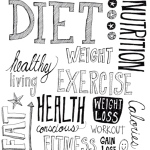I am concerned and now considering dropping the 5:2 diet.
I query its benefits, given that after 4 months of dieting my IGF has actually increased from 18.6 to 21.3 (normal range 7.2-25.5) – an increase of 14.5% while on the diet. The IGF is apparently the main indicator of cancer and health and this diet appears to be pushing me in the wrong direction.
As the diet was supposed to reduce my cholesterol my doctor agreed I should trial stopping my Lipitor statins in the hope that the diet would help. Well my cholesterol increased dramatically from 4.4 to 6.8 (54% increase). So I am back on the Lipitor as the diet did not help there.
I accept going back on the Lipitor, however I would have at least expected my IGF to be falling. If it is not falling, why stay on the diet. The IGF is the main indicator of health here. The science on longevity is unproven and will take many many years to prove. Why punish yourself on a diet when its benefits are questionable?
Does anyone know if the IGF fluctuates easily and what is the appropriate figure for a 50 year old man?
Does anyone have any ideas as to why my IGF is increasing given I am following the eating plans in the book?






11:27 pm
9 Oct 13